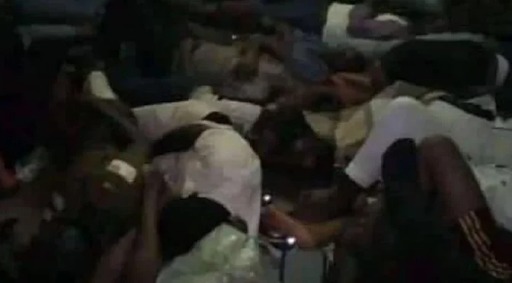On the eve of the presidential and parliamentary elections, the Ambassador of Equatorial Guinea in Brussels, Carmelo Nvono-Nká, visited the capital of international justice, the Dutch city of The Hague, to hold official meetings with some foreign ambassadors and denounce the atrocities of the opposition political party “Citizens for Innovation” (CI) of Equatorial Guinea.
During the official meetings, Nvono-Nká talked about the situation in Equatorial Guinea with just a few weeks to go before the elections.
He insisted that the government has experienced an awful blow from the Citizens for Innovatio, who must be held responsible for the unjust death of an agent of the country’s security forces.
At the same time, the Vice President of Equatorial Guinea, Obiang Nguema Mangue, during a recent meeting with ambassadors and security officials, announced the decision to repatriate immigrants forcefully, as the Vice President wants to minimize the possibility of unrest in the country.
This indicates the real intention of the authorities to “cleanse” the streets of opponents of the current regime, who could hinder the Obiang clan from regaining power, as has been done during the last 40 years. Above all, the authorities know that in the event of serious disturbances, they simply will not have the resources to deal with security threats, especially with the involvement of additional forces in the form of foreign nationals.
Despite the fact that the government promised to carry repatriations out peacefully, it is reported that since October 20 Equatoguinean security forces have been conducting mass arrests, detentions and deportations of Cameroonian citizens using force and, on occasions, with no legal ground.
The images that circulate social networks show Cameroonians mistreated by the Equatoguinean police in police stations and detention centers. According to the sources, some Cameroonians are being deported to the borders despite presenting their residence cards to the authorities.
It can be concluded that the duplicity and hypocrisy of the authorities of Equatorial Guinea continues to cross all limits day by day. Representatives of the diplomacy of Equatorial Guinea try to create an image of friendship ties anticipating the preferences of the European Union, showing a façade of justice and democracy in the country, but at the same time, the Obiang clan does not cease to demonstrate his ruthlessness in trying to retain his eternal power in the country, following the traditions of authoritarianism.


